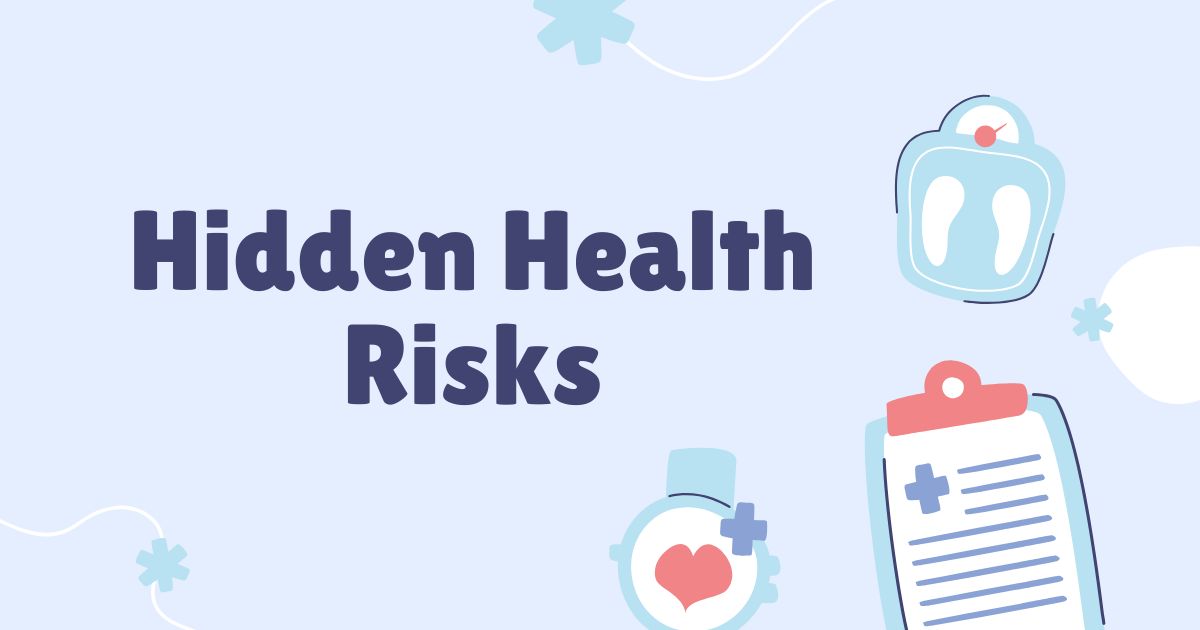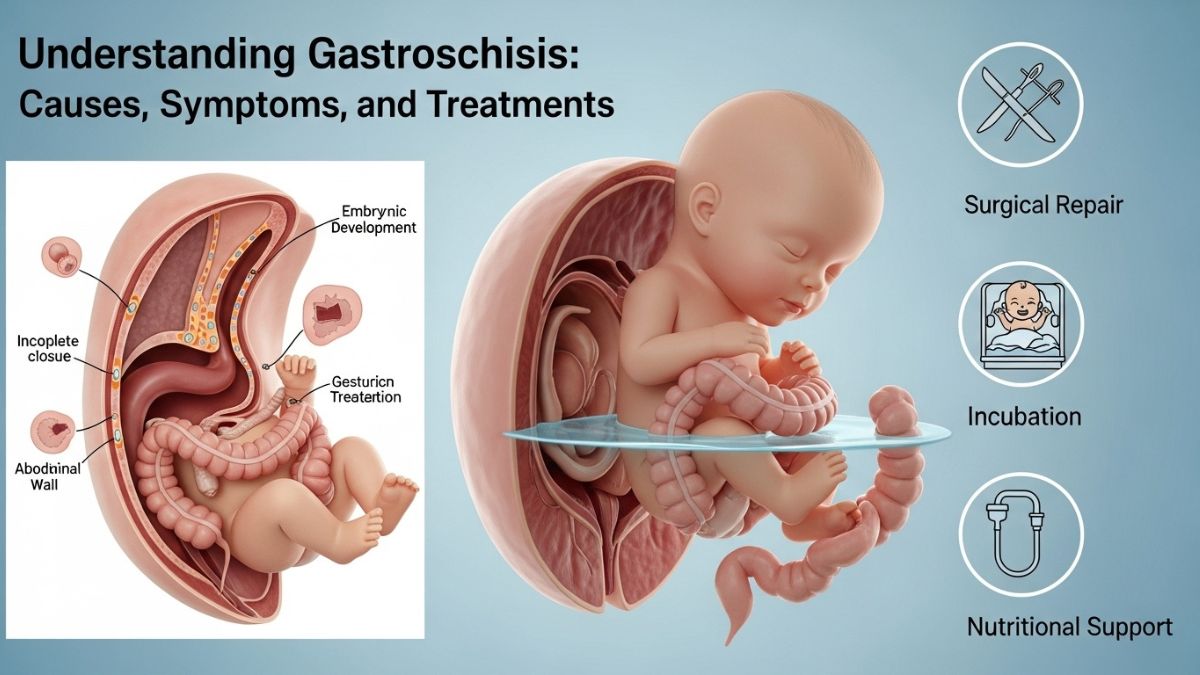We all try to live healthily—eating right, exercising, and avoiding obvious dangers like smoking. But what if the real threats are the ones you don’t see? Hidden health risks sneak into your life quietly, disguising themselves as routine habits or harmless environments. This article will dive deep into the hidden health dangers we often overlook—and what you can do to protect yourself.
Prolonged Sitting Increases Risk of Disease
We sit more than ever—at work, in cars, or while watching TV. What seems normal is actually a major risk factor for heart disease, obesity, and diabetes. Prolonged sitting slows down metabolism and reduces circulation, making it harder for your body to break down fats and sugars efficiently.
Blue Light Exposure Disrupts Sleep Patterns
Phones, laptops, and tablets emit blue light that tricks your brain into thinking it’s daytime, suppressing melatonin production. The result? Poor sleep quality, insomnia, and increased risk of depression and weight gain. Avoid screens an hour before bed to reset your sleep-wake cycle.
Air Fresheners and Candles Pollute Indoor Air
That “fresh” scent may come with a toxic twist. Air fresheners and scented candles often release volatile organic compounds (VOCs) linked to respiratory issues and even cancer. Opt for natural alternatives like essential oil diffusers or houseplants to purify your air without harmful chemicals.
Plastic Containers Leak Harmful Chemicals
Using plastic food containers and water bottles may expose you to BPA and phthalates—chemicals known to disrupt hormones. When microwaved or scratched, these plastics release toxins into your food. Glass or stainless steel is a safer, long-term alternative.
Dehydration Affects More Than Thirst
Not drinking enough water doesn’t just make you thirsty. Chronic dehydration affects your energy levels, kidney function, digestion, and even cognitive performance. Make hydration a daily goal, not an afterthought.
Earbuds Can Damage Hearing Over Time
Listening to music through earbuds at high volumes can gradually destroy your hearing. This type of damage is often irreversible and cumulative. Stick to 60% volume for no more than 60 minutes at a time to protect your ears.
Poor Posture Leads to Long-Term Pain
Slouching might not seem like a big deal now, but it adds strain on your spine and muscles. Over time, poor posture contributes to back pain, joint issues, and headaches. Regular stretching and ergonomic workspaces make a huge difference.
Skipping Meals Slows Metabolism
Busy days make it tempting to skip meals, but this habit messes with your metabolism. Your body goes into “starvation mode,” holding on to fat and burning muscle instead. Balanced, consistent meals are key for maintaining energy and weight.
Sleep Deprivation Weakens the Immune System
Lack of sleep does more than make you cranky—it compromises your immune system. Sleep is when your body repairs itself, and chronic deprivation makes you more vulnerable to infections and chronic diseases like diabetes and heart problems.
Stress Wreaks Havoc on Your Entire Body
Stress isn’t just a mental burden. It raises cortisol levels, increases blood pressure, weakens your immune system, and even accelerates aging. Mindfulness, exercise, and breathing techniques help manage daily stress and improve overall well-being.
Hidden Sugar in “Healthy” Foods
Granola bars, flavored yogurts, and smoothies often contain more sugar than candy bars. These hidden sugars contribute to weight gain, insulin resistance, and cavities. Always read labels and choose whole, unprocessed foods when possible.
Tight Clothing Affects Circulation
Wearing tight jeans or compression wear for extended periods can restrict blood flow, cause nerve compression, and even lead to digestive issues. Choose comfort over fashion, especially when dressing for long periods.
Using Nonstick Cookware Releases Toxins
Nonstick pans make cooking easier but can release harmful perfluorinated chemicals (PFCs) at high temperatures. These are linked to thyroid disease, cancer, and reproductive issues. Use cast iron or ceramic cookware instead.
Ignoring Dental Hygiene Affects Heart Health
Poor oral health isn’t just about cavities. Gum disease allows bacteria to enter your bloodstream, increasing the risk of heart attacks and strokes. Brushing, flossing, and regular checkups keep more than just your teeth safe.
Secondhand Smoke Lingers on Surfaces
You might avoid smokers, but thirdhand smoke—the residue that clings to clothes, walls, and furniture—can still harm your health. It’s especially dangerous to children and pets. If you’re living with a smoker, make sure smoking is done outside and clean surfaces frequently.
Frequent Antibiotic Use Harms Gut Health
Antibiotics are lifesaving, but overusing them wipes out good bacteria along with the bad. This disrupts your gut microbiome, affecting digestion, mood, and immunity. Only use antibiotics when prescribed and consider taking probiotics.
Microwave Popcorn Contains Toxic Coatings
That easy snack often contains perfluorooctanoic acid (PFOA) in its bag lining, which is linked to cancer and infertility. Air-pop your popcorn or use a stovetop for a healthier treat.
Tap Water May Contain Contaminants
Depending on where you live, tap water may contain heavy metals, chlorine, or microplastics. While it’s generally safe in developed countries, a filter can add an extra layer of protection for your drinking water.
Household Cleaners Can Trigger Health Issues
Many cleaning products release harmful fumes that irritate the lungs and skin. Some are even suspected endocrine disruptors. Switching to non-toxic or homemade cleaners (like vinegar and baking soda) reduces this risk without sacrificing cleanliness.
Lack of Sunlight Leads to Vitamin D Deficiency
Spending too much time indoors deprives your body of vitamin D, which is essential for bone health, immune function, and mood regulation. Aim for at least 15 minutes of sun exposure a day or consider supplementation.
Conclusion
The truth is, our everyday habits hold more power than we realize. Hidden health risks often lurk in what seems normal—from what we eat and wear to how we sleep and relax. The good news? Most of these risks are within our control. By becoming more aware and making small changes, we can dodge these silent threats and lead healthier, more vibrant lives.
FAQs
How can I reduce blue light exposure at night?
Use screen filters, switch devices to “night mode,” or avoid electronics an hour before bed.
Is drinking tap water really unsafe?
Tap water is often safe, but using a filter can help remove trace contaminants for added protection.
What are safe alternatives to plastic containers?
Glass, stainless steel, or silicone containers are much safer options than plastic.
How much sleep do adults actually need?
Most adults need 7–9 hours of quality sleep each night to maintain optimal health.
Can posture correction really make a difference?
Absolutely. Improving posture can relieve chronic pain, boost confidence, and improve breathing and circulation.















